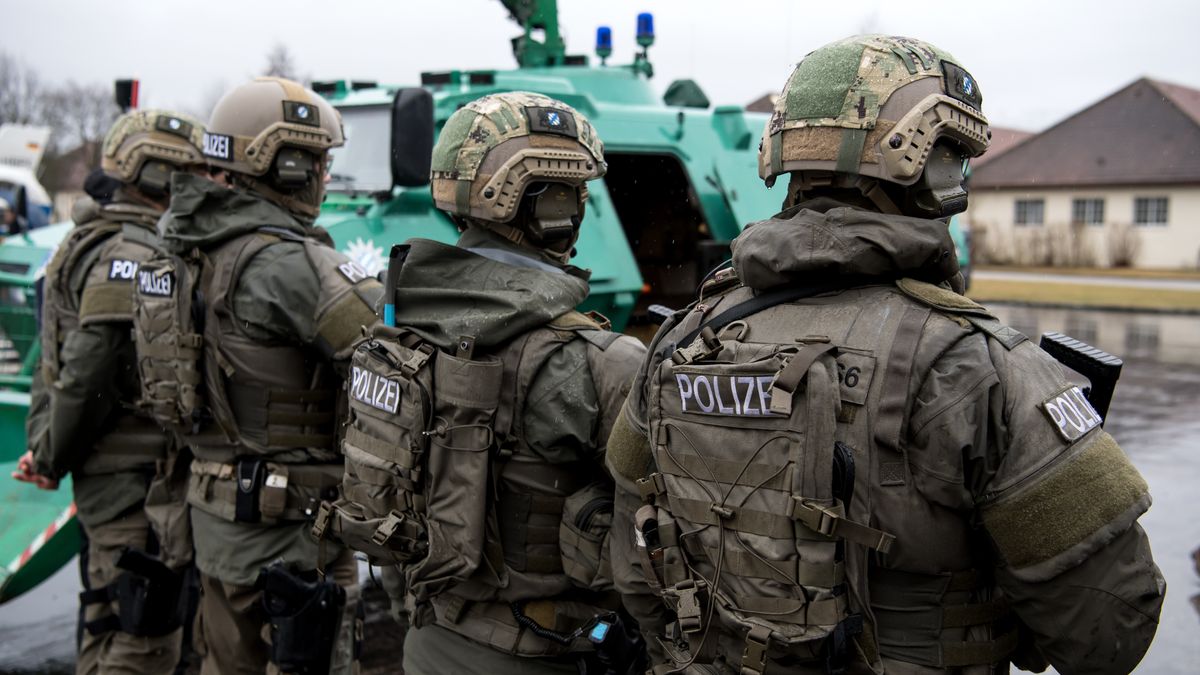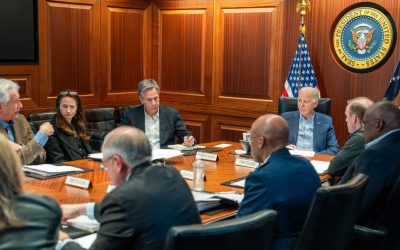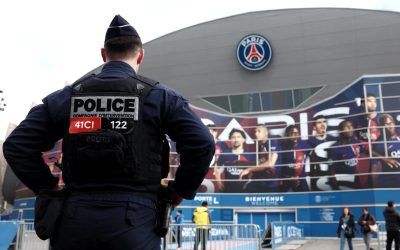Counter-Terrorism After 9/11, Episode 3: Counter-Terrorism and The War on Terror with Bruce Hoffman
Julie Coleman J.D., LL.M, Bruce Hoffman29 Sep 2021
Icct – Counter-Terrorism After 9/11 is a podcast series exploring how counter-terrorism has changed in the aftermath of the terrorist attacks on September 11th, 2001.
In our third episode, we speak to Bruce Hoffman, Professor of Security Studies at Georgetown University and Senior Fellow for counter-terrorism and homeland security at the Council on Foreign Relations.
This interview examines how counter-terrorism has evolved over the last 45 years, the impacts of 9/11, and the future of the Global War on Terror. Interviewing him is Julie Coleman, a Senior Research Fellow and Programme Lead of the Preventing and Countering Violent Extremism (P/CVE) programme at ICCT.
You can listen to Counter-Terrorism After 9/11 using the audio player below or through your favourite podcast player (Spotify, Apple, Google, Breaker, Pocket Casts, RadioPublic). Below is a transcript of the interview, which has been shortened and adapted for publication.
Warning: This transcript/podcast contains material that some viewers may find distressing.
JULIE COLEMAN: It is a pleasure be here today with Bruce Hoffman. Bruce, I am sure that everyone reading this will be very familiar with your name and your work, but could you introduce yourself, your position and maybe a little bit about your professional background?
BRUCE HOFFMAN: I have been studying terrorism and counter-terrorism and insurgency and counter-insurgency, for 45 years since I first came to graduate school in October 1976. I spent the first decade plus as an analyst at the RAND Corporation. In the mid-1990s, I moved to St. Andrews University, Scotland, where I co-founded and was the first director of the Centre for the Study of Terrorism and Political Violence, which I believe is the longest, continuously existing academic institution dedicated to the study of terrorism and political violence. In 1998, I left Scotland and returned to the United States, to the RAND Corporation. But whereas I had spent the beginning of my career at RAND’S headquarters in Santa Monica, California, in 1998, I returned to the Washington office. I stayed at RAND until the mid-2000s. Whilst at RAND, I was seconded to the CIA as scholar-in-residence for counter-terrorism. I was also seconded to the Coalition Provisional Authority as an advisor on counter-terrorism. I subsequently served as an advisor on counter-insurgency to the Multi-National Forces-Iraq Headquarters. I then came into academia full time in 2006, when I was appointed professor at Georgetown University’s School of Foreign Service, working in the Security Studies program, and I have been there since. For a brief period, I was a congressionally appointed commissioner on the 9/11 Review Commission, between 2013 and 2015, which was designed to assess how the FBI had adopted, from primarily a law enforcement agency before 9/11, to an intelligence driven one after that period, and in particular, to see how the FBI had implemented the intelligence reforms enacted by Congress in 2004. I’m currently still a professor in the Security Studies program at Georgetown University, where I also direct the Center for Jewish Civilization. I’m simultaneously a Senior Fellow for Counter-Terrorism and Homeland Security at the Council on Foreign Relations, and also a Senior Fellow at West Point’s Combating Terrorism Center.
COLEMAN: Thank you, certainly an impressive career. What was your role at the time of the 9/11 attacks?
HOFFMAN: Of course, 9/11 just changed everything, in that there was an intense need for terrorism research, such as there really had not been in the mid-1990s. Frankly, that is one of the reasons I left RAND and went to St. Andrews University, there was no longer any government funding for terrorism research. And I worried that if I stayed at RAND that my expertise would become rusty. So when the late Professor Paul Wilkinson offered me an academic position at St. Andrews and said “come and help me build the centre and you’ll be its first director,” I jumped at the opportunity to remain in terrorism studies. But following the August 1998 bombing of the US embassies in East Africa by al-Qaeda, governmental interest in terrorism was slowly increasing and reversing from the stagnation of the early 1990s. But of course, it took off in a completely different direction following the September 11th attacks.
COLEMAN: What was your personal experience of 9/11?
HOFFMAN: That was an absolutely horrific day, especially being just across Highway 395 from the Pentagon. I so clearly remember that I thought World War Three had started, in that I felt society had broken down in the sense that, in the aftermath of the two planes crashing into the Twin Towers, then the strike on the Pentagon, and then the plane United Airlines 93 that was taken over by passengers, no one knew what was going on and what was happening. The United States was under attack as it had never been, even on December 7th 1941. I mean this was the continental United States and no one knew what was going on. Astonishingly, because of course a month earlier, two CIA analysts had delivered a briefing titled ‘Bin Laden intent on undertaking an attack on the United States’. But, you know, you have to remember the federal government closed down. All of a sudden, the streets of Washington, DC were just packed. Traffic was gridlock, no one was observing red lights, you could not get anywhere, the metros were packed. Everybody, much like in Manhattan, just had to walk home. And it really alarmed me because it underscored what I had always studied—and had always known and feared: the power of terrorism. The power of nineteen individuals in that instance, or one terrorist leader, Osama bin Laden, literally to change the course of history. How they could so completely and decisively upend society.
September 11th wiped the slate clean. And I think that its lasting and most enduring effect is that terrorism on that day crossed the threshold from being a tactical problem, as some I think wrongly would have said, even a nuisance, to something that had profound strategic consequences on a global magnitude. And in fact, that potentially brought us closer to understanding the conceivably existential threat that terrorism could pose to established nation states.
COLEMAN: So looking back at the past 20 years, would you have predicted that the Global War on Terror would unfold in the way that it did?
HOFFMAN: I do not think anybody could have predicted the course of the War on Terror. And I do not think anybody at the time thought we’d still be enmeshed in this struggle. I still do not think anybody would have imagined that twenty years later, we would be fighting these same adversaries. That, if anything, the ideology behind al-Qaeda is stronger today than it was back then. There are four times as many groups today designated by the State Department as terrorist organisations with that ideology than there were on 9/11, which I think is a significant failure of the War on Terror. It has succeeded, certainly in keeping the United States, and to a large extent but not as completely, Europe free from major catastrophic terrorist attacks. But I do not think anybody would have foreseen the path that we followed. Certainly no one imagined, at least no serious terrorism analysts that I know of, imagined that less than two years later, the United States would invade Iraq and completely pivot away from the focus on al-Qaeda and to defeating worldwide terrorism onto a fruitless search for weapons of mass destruction that did not exist based on highly, even at the time, dubious and tenuous claims that Iraq had something to do with 9/11. So that was unpredictable. But I do remember very distinctly, shortly before noon, on September 11th, standing in front of the RAND office in Pentagon City, so very close to the Pentagon, literally as all hell was breaking loose. The streets were teeming with persons trying to get away from government contractor and other offices in the area. And I thought to myself, we’ll never make this mistake again. We will never underestimate the power of terrorism, we will never lower our guard and become complacent. And I must say, that in August 2021, I feel like I am back in the early 1990s, when we dismissed the threat of al-Qaeda and the safe haven that the Taliban allowed them in Afghanistan. I thought on September 11th that we would never be back. I thought we had learned a very profound lesson about terrorism’s power to affect the course of history and to have these profound strategic consequences on governments throughout the world.
COLEMAN: Why, with all of the attention and resources and efforts that have been paid into the field of counter-terrorism, have we not been better about learning those lessons?
HOFFMAN: We are certainly far better prepared to counter the threat of terrorism in the United States and elsewhere, than we were in the 1990s. So I want to be clear on that. What I am talking about is the mentality. I think that this is a pathology that is woven into history in all countries afflicted by terrorism. We have seen time and time again in the immediate aftermath of a terrorist attack, there is intense concern, intense governmental focus, and indeed, considerably more resources devoted to countering terrorism. But time and time again, and not least of all in the context of the 9/11 attacks, as time has receded, we become more complacent. We still see terrorism as a threat, but not as prominently as before and we do not continue to prioritise it in the same way. And in this sense, what worries me is that we lower our guard and provide terrorists with precisely the window of opportunity, such as they exploited on 9/11, to once again launch a highly consequential attack. And then we’re back into the same cycle of not just reacting, but overreacting.
This is a problem of all governments in response to terrorist provocation – they do not understand that that is precisely the strategy of terrorists, to provoke an over-the-top response that they can use to feed into their narrative. And that is what concerns me. It would be far better to have a much more consistent and stable response to terrorism, rather than the broad swings of the pendulum that historically has almost always been the case.
COLEMAN: So you mentioned that we are perhaps much better prepared than ever before to counter terrorism. What lessons have we learned? Or where have we made significant progress that we should reflect upon and be optimistic about?
COLEMAN: Taking into consideration that there are more terrorist organisations today than there were 20 years ago, and more attacks being carried out worldwide. Do you think the approach to counter-terrorism that has been taken has been the right one?
HOFFMAN: I think the biggest mistakes were invading and occupying countries. That did not work very well. My problem is that the pendulum has swung from having hundreds of thousands of troops in a country to having zero. Hundreds of thousands of troops occupying a country clearly was not the answer. But zero similarly is not the answer. It is a fool’s errand to believe that a couple thousands of troops that provide training and advising, and enable host countries afflicted by the threat of terrorism to respond effectively, is somehow an extravagance that can no longer be afforded or provided as a relatively low-cost insurance measure. The logic behind that eludes me.
But more specifically, in answer to your question, despite the fact that from the start of the War on Terror it was proclaimed to be a war of ideas, it was never fought that way. It was always fought militarily. And that was our mistake. In particular, we paid a lot of lip service to countering the narrative or waging a war of ideas, but it never ever received the priority that the military dimension did, or never received the type of executive and legislative prioritisation that it required to succeed. And that is why I think there are four times as many Salafi jihadi groups on the State Department’s list of foreign terrorist organisations as there were on 9/11.
I think the reason why this is so, is fairly simple. You can quantify killing and capturing terrorist leaders and foot soldiers. This is something that can be accomplished within the lifespan of a presidential administration in the United States, or even within the two-year term that our congressmen in the House of Representatives serve. It is far more difficult to quantify, or to have meaningful metrics of how you have dissuaded people from joining terrorist organisations, how you measure the effectiveness of countering the terrorists clarion call to violence by introducing values that uphold democracy, such as human freedoms and dignity, the rights of women, and so on. You cannot really measure that. And therefore, I think historically there has been a lot less interest in budgetary allocations, to really live up to the promise that this would be a war of ideas. It has therefore never been fought as such.
COLEMAN: How do we overall have a more consistent and more balanced approach? How do we remedy some of those missteps?
HOFFMAN: The simplest, unfortunately, most cynical response is to say it is going to take another catastrophic terrorist attack, to shake us out of the notion that terrorism is not as much of a strategic priority as great power competition. I am not saying that it has to occupy the number one position, but it must be a top-line national security priority. And I fear that the United States and many other countries, see it as an either-or choice, focus on great power competition and really denigrate or dismiss the threat of terrorism. We have to have a much more stable, rather than sclerotic response to these threats, one that is consistent and shifts priorities as needed but that does not denigrate or dismiss threats as moribund but that still nonetheless persist. We have to be more consistent in our response. And sometimes we have to understand that dissuading someone from becoming a terrorist is enormously important, but it is immeasurable in some respects, so we have to have confidence in the fact that our non-kinetic efforts, over the long term, will also deliver effective results.
One only has to refer back to the Cold War – the United States and NATO did not triumph over the Soviet Union and the Warsaw Pact by force of arms. There was certainly a military stand-off, but it was a very concerted, directed, coordinated and properly resourced information operations effort by Radio Free Europe, by Radio Liberty, by the Voice of America, by the United States Information Agency. You had a prioritisation of non-kinetic tools, which was enormously consequential. Rarely is any outcome achieved through just one initiative. It is often a concatenation of a variety of policy initiatives and my point is that we have leaned overly heavily during the past twenty years on the kinetic side, and under-resourced the non-kinetic side. That is where I believe we have gone astray and why we are still fighting this this war twenty years later, which is by no means over.
COLEMAN: We have touched upon some really significant challenges and struggles within the field of counter-terrorism. But if you had to pinpoint one thing, what has remained the key challenge to having a more effective approach to counter-terrorism?
HOFFMAN: Easy: consistency of effort. The trouble is, throughout the War on Terror, every single US President, from President Bush, President Obama, President Trump, now President Biden, has precipitously declared victory over our enemies, or declared that they had been sufficiently weakened, so we can divert resources elsewhere. And that is the cardinal mistake, because our adversaries see their cause as divinely ordained, which means that they are not going to lay down their arms. The then General commanding the US Central Command, General James Mattis, before he was Secretary of Defense, said in 2013 that the enemy always gets a vote. I think if we had a more consistent response, we would see these things to the end and not be tempted to declare victory prematurely and move on. Because every time we have done that in the past, it has breathed new life not only into the terrorist organisations who have been able to regroup and reorganise, but in many places, whether it is Syria, Libya, South Asia, it has enabled our adversaries to intervene in these conflicts, in many instances, in a way that is very detrimental to Western interests.
COLEMAN: Given that terrorism is such a pervasive aspect of 21st century life, how would you define victory? What to you would be an indicator that we have actually achieved the desired outcome in the Global War on Terror? What would that look like?
HOFFMAN: The franchises of terrorist groups begin to dry up, become less threatening and less consequential. The attractiveness of their ideology and the resonance of their narrative is decreased and that leads to a diminution of both their sources of revenue and sources of recruits. Terrorism is reduced to a local or at best, a national or regional problem, rather than the global one it is today.
COLEMAN: What is the biggest lesson that has been learned from 9/11? And how should we take that lesson in moving forward as we look to the coming decade or two?
HOFFMAN: Each of the past two centuries has found the world enmeshed in a global conflict because of an act of terrorism. Of course, in the 20th century, it was the assassination of the Archduke Franz Ferdinand in Sarajevo that set alight the fuse that started World War I. It was not the only cause, but it certainly set in motion the chain of events that led to, what at the time was the world’s greatest conflagration. And, of course, the beginning of the 21st century, it was the 9/11 attacks, which changed the course of history exactly as I think bin Laden had hoped it would. So I think the lesson is an understanding of the power of terrorism to affect events. And the fact that the threat of terrorism has to be taken seriously, has to be responded to consistently, and should not be denigrated or dismissed. As a terrorism analyst of many decades, I find it enormously depressing that not only are we still fighting the War on Terror, but we face new terrorist threats and new terrorist adversaries. Twenty years ago, at least in the United States, the threats were primarily external with the fear that people from overseas had come into this country to carry out the terrorist attacks on September 11th. What we have seen in recent years is that we now have threats from our own citizens. Certainly the events of January 6, 2021 cannot be divorced from the long road we have travelled since September 11, 2001. Terrorists always seek to undermine confidence in elected leadership, to create profound sources of divisiveness and polarisation. That is the terrorist’s goal, as I said earlier, to impose the strategy of provocation to get us to overreact. The solution is not to ignore the threat of terrorism or to wish it away, but to recognise it for the power that it is and for the consequences that it especially unleashes on the liberal, democratic state.
COLEMAN: Certainly a lot of heavy food for thought in moving forward. Thank you for taking the time to speak with us today.
HOFFMAN: You’re very welcome. It’s been a great pleasure.
Bruce Hoffman has been studying terrorism and insurgency for over four decades. He is a professor at Georgetown University’s Walsh School of Foreign Service where he directs the Center for Jewish Civilization.
Hoffman is also the Shelby Cullom and Kathryn W. Davis Senior Fellow for Counterterrorism and Homeland Security at the Council on Foreign Relations, and the George H. Gilmore Senior Fellow at the U.S. Military Academy’s Combating Terrorism Center.
Julie Coleman J.D., LL.M is a Senior Research Fellow and Programme Lead of the Preventing and Countering Violent Extremism (P/CVE) programme at ICCT.




